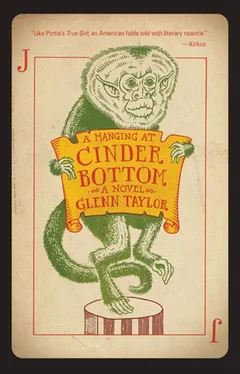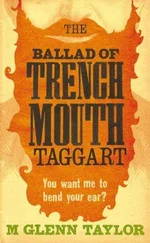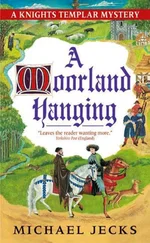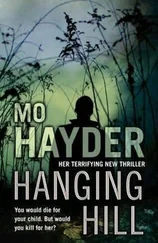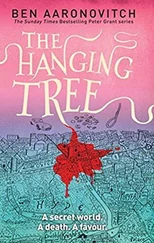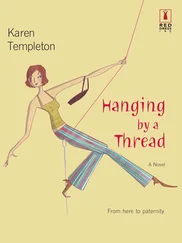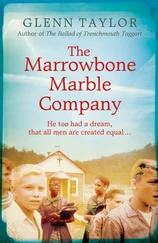Moon watched him close. “They are all just fine until this telegram, far as I know.” He had always wanted to tell the young man what little he knew of life in Keystone by way of Al Baach’s letters, which came every five or six months. “Your father was grazed in the knee by a ricocheting bullet two years back,” Moon said, “but he gets around. Your mother is well, as is your younger brother. Goldie too is well as far as I know, though her father died last year.” In all of his letters, Al Baach had written to Ben Moon, in one form or another, the following: Abraham must not know of what goes on here with us. If he knows, he will come here, and that is still not safe .
Then came the telegram. Jake dying .
Moon said, “I know that your father has managed to keep the saloon open, but business has been slow.” He cleared his throat. “I believe he’s taken up shoe repair again.”
Abe stared at the words on the telegram and tried to imagine his family, less one. “How can business be slow with Keystone the way it is?” he said. “I’ve met more than a few men who travel there twice a year. I heard a fella in Boston once talking about Cinder Bottom girls.”
Moon didn’t know enough to answer. He knew some of it lay in the blackballing of the Baaches after Abe cut the wires and left town. He didn’t want to rile him. “Listen to me Abe,” he said. “I’m going to tell you something about your father and then you’re going to get on a train.”
Abe listened.
Moon told of a time when he was eleven years old, a time when the first of many letters arrived from Keystone. This first letter, like all that were to follow, was addressed to both Ben Moon and his mother. In it, Al Baach wrote of what had happened that day in September 1877, and how sorry he was about Vic Moon’s demise. He inquired as to whether they’d received Vic’s body and the substantial monies he’d had on him. Al had suspicions already on the veracity of Trent’s promise to send the money, and he apologized for having not taken care of such business himself. A correspondence commenced then between young Ben Moon and Al Baach, and in each letter the boy received, there was a renewed promise to find Vic Moon’s body. There was also enclosed money. When the boy was thirteen, all one hundred and twenty-three dollars had been repaid.
“I bet he never spoke to you or anyone else about this.” Moon said.
Abe shook his head no. He wondered why Ben Moon hadn’t told him before. He wondered at the figure: one hundred and twenty-three dollars. It was chasing him.
There was a low roar inside his head.
“Your father is a good man,” Moon said. He opened a box of long cigars and took one. “He is one of the few left.” He trimmed his cigar with a letter opener and lit it and told Abe it was time to go home and make things right with his family.
Abe nodded.
“I do know a little bit about Mr. Henry Trent and Mr. R. Rutherford,” Moon said. “And the Beavers brothers.” He scoffed, but beneath the scoff was the truth. Ben Moon feared no man, excepting those absurd West Virginia men about whom he’d only read in letters, those men living in a place he’d never been, the place his daddy had died. “You need to ready yourself, maybe bring a man or two along.” He cleared his throat. “Trent is mayor now, and Rutherford is chief of police.”
A dizziness came upon Abe then. He thought he might fall from his chair.
“You feeling poorly?” Moon asked.
“I’m just fine.”
“You certain?”
“I’m certain.”
He wished he had time to help the younger man, but too many needed help in this world, and he had always been a man without the time. “You all set for pistols?” he said.
“I’m all set.”
“I got a new five-shot.38. Little three-inch barrel.” Moon opened the big bottom drawer and took out a revolver. “Easy to conceal,” he said. “You still pack a second don’t you?”
“I do.”
“Might be time to pack a third.” He held it out. He said, “It’s good for close quarters.”
Abe took it. The gun wore not a smudge. Nickel finish, blued hammer. He tucked it at the base of his spine and cinched his belt a hole tighter. “Thank you,” he said.
“How about rifles?”
“Not on this trip.”
“You want to take along Bushels?”
“No.”
“He is a man of many talents.”
“No. It’s easiest on my own.” He tried to imagine himself back in Keystone. He considered a moment on how he might play it, on what he might find. “Second thought,” he said, “tell Tony Thumbs to watch for a telegram.”
Moon smiled at the sound of the old man’s name and wrote it down. “You haven’t used Tony in a long while,” he said.
Tony Thumbs was an eighty-two-year-old theater operator whose company Abe enjoyed. He had once been a large-scale buyer of Radiant Moon cards. Before that, he’d been a top card manipulator himself until a blacksmith, angry over losing at Tony’s monte table, chopped off his left thumb with a hammered-steel cleaver. Now he made small-batch powder remedies for insomnia and brewed syrup cures for indigestion. He ran a theater called Old Drury and kept a stable of actors and short-con specialists and oddball sideshow types.
“You hire on Tony Thumbs,” Moon said, “you get two bodies for the price of one.”
“How do you mean?”
“I mean Baz.”
Baz was a capuchin monkey who rarely left Tony’s shoulder.
“That monkey is still alive?”
“I figure each of em is waiting on the other to die first.”
They laughed at the thought of it.
They discussed their methods of communication. Ben Moon would wire Abe at the Keystone office on Wednesday mornings. He’d address the telegrams to Joe Visross, and he’d use a false name himself. They’d stick with the codes they’d developed. More than likely, the telegrams would shortly originate from New Jersey, where Moon had business to attend.
“Abe,” he said, “I will give you what you need to straighten affairs down there. My father’s life ended in Keystone, and many years ago, before all this other got in the way, I resolved—”
Bushels knocked on the office door and came on in. He had the forgery cards Abe requested — two boxes wrapped tight in oilcloth and strung with twine. Abe thanked him.
He shook Ben Moon’s hand, and again the older man grabbed him at the shoulder and patted him.
Abe walked down the back stairs and out to the loading docks. He took a last look at the water as he left, and he recalled the peace he’d found at the harbor all those years before, walking where his father had walked as a young man. Then he looked at the tall pilings where he’d nearly lost his life at twenty-three. It was on his second Friday night in Baltimore, just past the Frederick Street docks, that he’d run across a squat man named Dash who was known to parry and slash like his joints were oiled, a trained cutter in a fight. Abe hadn’t known Dash’s reputation at the time. He’d only known that he was a dip, a no-good pickpocket whose buddy tried to stall Abe by the loading docks. The stall was clumsy when he bumped Abe, who recognized the strategy and kept walking. There was nothing in his pocket to pick. His money was in his shoes. But Dash was frustrated to come up empty-handed, and he hollered at Abe, “Watch where you step you fuckin tomato can.” Abe was drunk, and he’d turned and taken a swing. Dash pulled the blade and got him across the jaw on the second slash. Blood came in a sheet, quick, and Dash reared back to go again. That’s when Ben Moon shot Dash in the spine with a.45 revolver from where he stood against the back wall of his warehouse. He was more than forty feet off when he fired.
Читать дальше
Конец ознакомительного отрывка
Купить книгу
